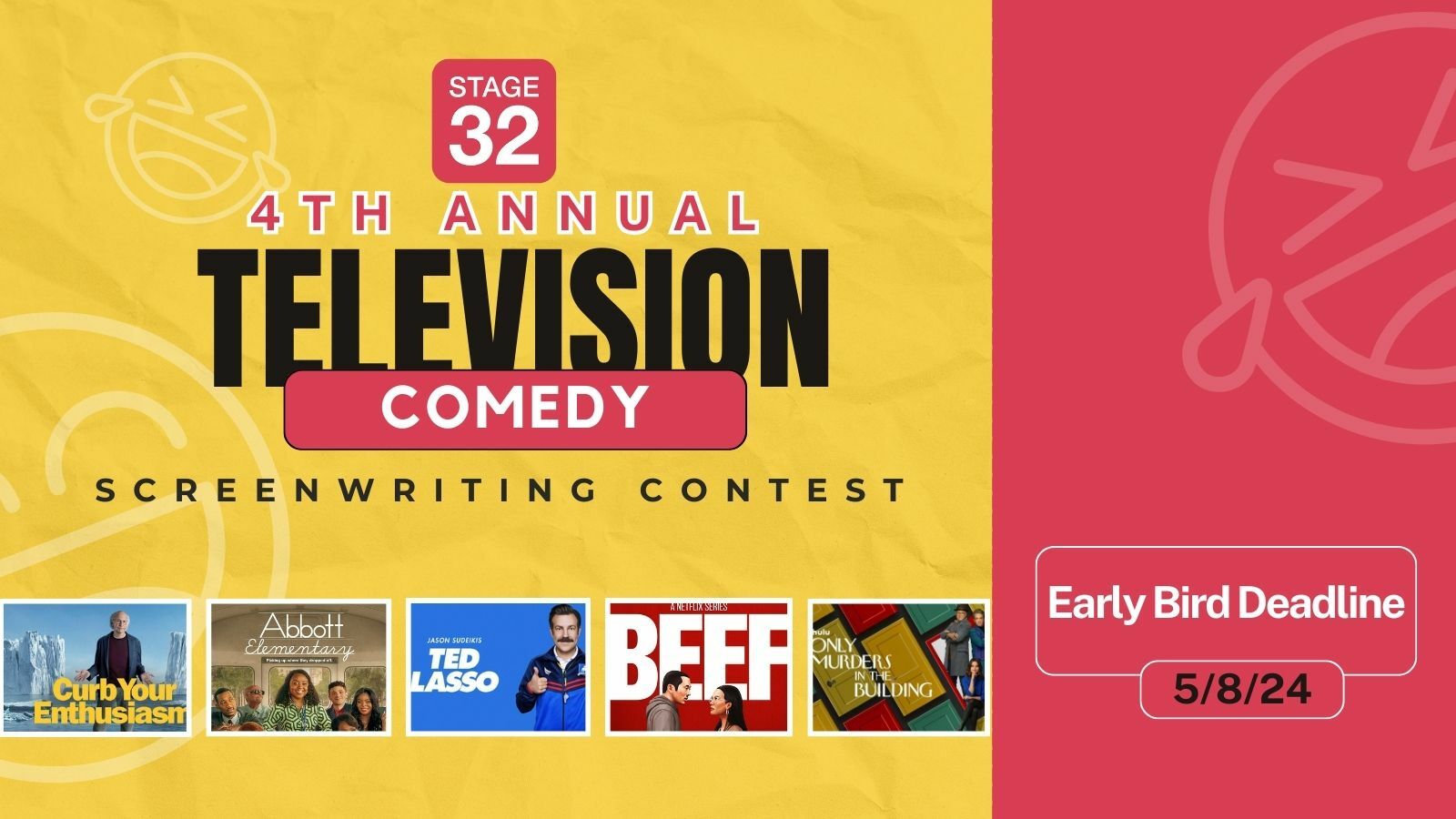Good morning, all. Davis Bunn here, writing from Oxford, where I'm serving as Writer in Residence at one of the University colleges. I've been a full-time novelist for over thirty years, did a graduate course in screenwriting eight years ago, have been doing spec scripts since. Sold two, neither produced. I currently have three out there in the LA wilderness, being shopped around by producers. It's soooo hard, this time of helplessly hoping. Hopelessly helping. Whatever.
Wishing everyone great success.



3 people like this
Hello Davis Bunn from a fellow Brit (Bristol). It’s great to see you on the IYW. Yes, it sooo hard, but it’s the compulsion to write that keeps us going.
If I may ask, what happened with the two scripts you sold? I think finance for film in the UK was dipping before the Covid Experience and was just exacerbated because of it.
I had my own production company, which I had to dissolve. It was set up to deliver the production of my script, Seeing Rachel, but that’s a long and winding road that didn’t lead me home! All the best, Geoff
3 people like this
Hello from another Brit, but this time from Godalming! I'm currently at the pitching stage for my spec, so would love to chat!
2 people like this
Geoff and Craig, thanks so much for these connections. Craig, I'd be so happy to chat, or meet, whichever suits. Are you ever in Oxford?
Geoff, hi, both were taken by LA groups. For the first, the film division's president - the individual who acquired the script - was fired. Project shelved. For the other, well, it's a long story. Short version, months of meetings, lots of work, nada. Does that sound familiar?
Love Bristol, btw. My wife studied there. We lived between your home town and Malmesbury. Would go back in a heartbeat.
Great to meet you, Davis Bunn. Congratulations on selling two scripts!!! :D
1 person likes this
Hey Davis, congrats on selling two scripts and still writing specs. My end goal is to direct, I write because I have a story I absolutely have to tell. Getting a script produced is hard. I know of other writers who sold scripts that never got made. The only thing you can do is produce it yourself (which is a long and tough road, too..I know, having produced my own films)...Saying hi from Switzerland. All the best!
1 person likes this
Hello and thank you both so very, very much. So encouraging to hear of your work and determination to forge ahead.
Oriana, I lived in Switzerland for almost five years - taught at uni in Vaud, then worked in Ticino. All part of the grind before reaching the point of living from my real work. We then moved to the UK so my wife could begin chasing her own dream, doing grad studies in Bristol. I miss your beautiful country so much. Such a delight to return now and then.
Wishing you all great success forging ahead.
2 people like this
Dear New Allies,
I walked away from this morning's communiques, only to feel like I'm not focusing on what really should be shared here - lessons I have learned from these current situations. So here goes. Three to start. Let me know if they're useful, please, and/or if you want more.
First, REJECTION AND RECOVERY. I wrote for nine years and completed seven novels before my first was accepted for publication. I actually don't know how many times I was rejected during this period. Which is usually what I hear being discussed when writers/producers meet up. But what I feel is missed, and is actually more important career-wise, is what happens next.
I'm thirty years into living from my stories. Currently I teach all over the world. One element that seems to separate those who successfully live from their written art and all the others is NOT how they handle rejection, but rather if they can maintain a steady output of NEW STORY throughout the process.
This means a complete and utter separation between the commercial and the creative. It also requires a very clear determination to maintain creative output on NEW STORY. Becoming overly focused on what has already been done, no matter how great the fire is on any story, means becoming chained to the past. It's hard, but it's true. Constant creative output is crucial to building a career.
It is very important to note that revisions on existing projects does not count. Not here. New story. New characters. New creative output. Facing the challenge of the empty page on a daily basis. These are the key elements that lead to ongoing success. It's the only way I have ever seen for people to arrive at that elusive goal - becoming professional, paid, successful, writers.
Second, PERSONAL RELATIONSHIPS. Two examples. My bad mistake first. Last year I had a pilot script and first-season bible taken by an emmy-award winning producer. He agreed at the outset to restrict the amount of rewriting to what was absolutely required until the project had a tentative go and I could actually see myself being paid. Not that money was coming in. Just that this was a real, concrete future prospect.
This did not happen. Instead, while I waited revisions on the badly written and very unfair contract, he began a page-by-page dissection of the pilot. What he wanted redone was not really a problem. I actually enjoyed most of what he was doing, as it helped me see - for the first time ever - how a producer/director viewed a project, and what it meant to get this script ready for the camera.
But while this was happening, I was under constant pressure from existing contracts. As in, writing projects that actually paid. The result was, I did not handle this at all well. I resisted. I was uncertain how to handle this. I probably should have asked for us to wait until the contract was in place before continuing. But I could sense his ongoing fire for the project, and have seen how other producers went from fire to ice in a matter of minutes. I created conflict where none was required. And he dropped the project. What I was trying to keep from happening, happened. And it is all my fault.
Example two: Four years ago, my first big break - selling a script to a major indie house, tiny initial payment, HUGE payout contracted on first day of principle photography. A real, actual, game-changing professional hit. Then the film division's prez was fired, and the group went into negotiations to be bought by one of the majors, and all new projects were frozen.
This time, subsequent conversations with the former prez were all about being a friend. He was going through as bad a time as me. This guy had produced two huge huge huge films. And he had nothing going forward. At least I had my novels. So every couple of weeks we talked. Four years later, he's now producing a sixty million dollar project for Apple Plus, and we're still talking, and he's still reading my work, and all of a sudden we may be trying to put together a new project.
Third, REALITY CHECK. In my many conversations with writer/director/producers over passion projects, one very clear recurring thread often becomes blindingly clear. I use that word, blinding, intentionally.
There are two elements at work here. The first is DEFENSIVENESS. Once the project is actually down on page, there is a tendency to see it as great. Done. The characters and the structure are set in stone. This builds into a knee-jerk response to all outside comments. The barriers rise up, the requested changes are rejected out of hand. The result is stasis. There is a safety in this isolation, despite the pain of not moving forward. Hope can be maintained, passion stays in place. And the career...What happens to the career?
The second element is BALANCE. Somehow, some way, there needs to be a recognition of what the commercial world requires in terms of changes. The issue is easy to state, hard to identify: What alterations are required to make this project commercial? How can it be rebuilt, revised, restructured, so the investor can see themselves making a profit? This really, really, really needs to be addressed. It's why most investors are in this game at all. Showing a profit off each new project.
BALANCE. The need for change, this openness to discussion, must be held up against your need to maintain creative integrity. For this to happen, two things must be kept in place. Sometimes for years.
First, what are the key elements that define your passion? What must absolutely remain intact? Identifying these crucial components means it's possible for you to drop your defensiveness to everything else.
Second, you need to build a creative distance from the project. This is absolutely vital. And the only way I've learned to do this is by WORKING ON A NEW PROJECT. Which brings us back to step one. And concludes this overlong note.
Wishing you all every possible success.
Warmest regards,
Davis
1 person likes this
Dear Davis,
I can understand you miss Switzerland. I' ve been in a few countries myself, but couldn't live anywhere else long-term.
Thanks for sharing your takeaways on how to build a writing career. Your third point is the hardest one in my opinion. It also shows how vital it is to find the right people to work on the project one has so carefully molded, and still being able to change one' s perspective and think about audiences and investors..One takeaway I had from teaching was to make sure everything one imagined actually is on the page.
I hope your projects are going well. Let us know when we can keep a lookout for your produced story!
Kind regards,
Oriana
1 person likes this
Beautiful words, Oriana, and thanks so much for these comments. I have a co-author with whom I've just completed our third novel, first two published, second just released last week - he lives outside Basel. Would love to introduce. He's currently teaching at a writers' conference in Nashville, back to Switz next week. May I introduce?
1 person likes this
Hello Davis, yes please do. I haven't been on here much in the last few months because I ' ve had a baby. He' s now 15 weeks old.